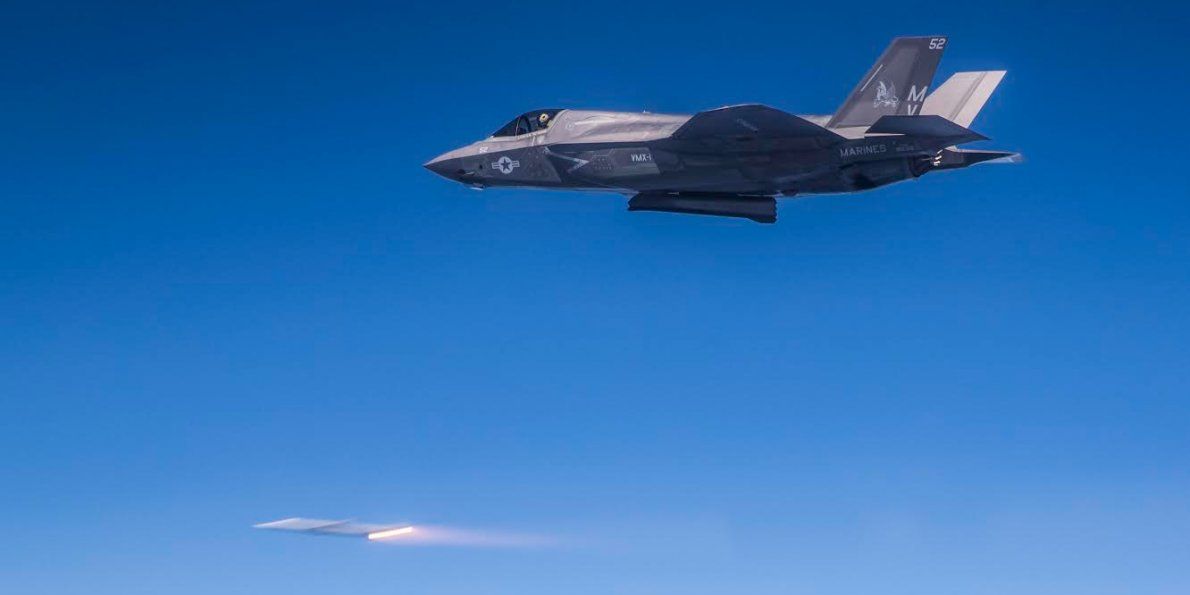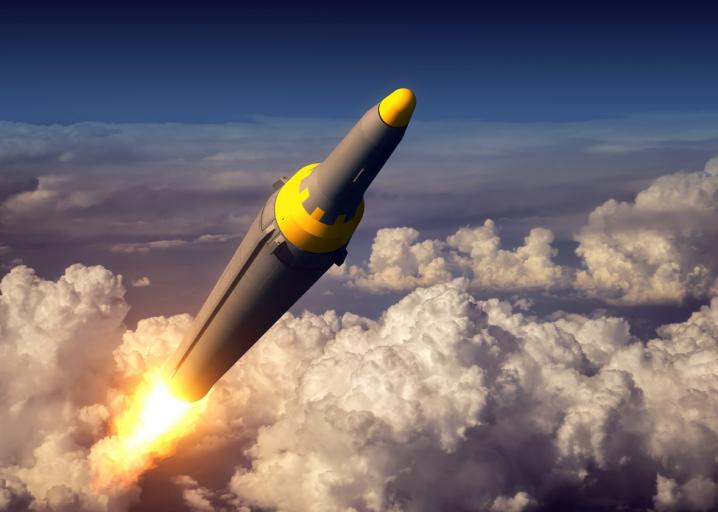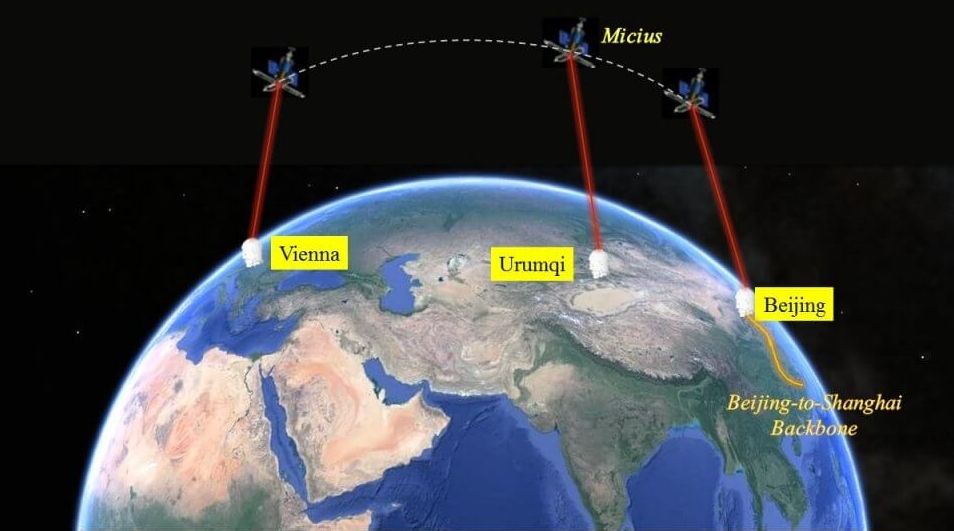Underground settings are becoming increasingly relevant to global security and safety. Rising populations and urbanization are requiring military and civilian first responders to perform their duties below ground in human-made tunnels, underground urban spaces, and natural cave networks. Recognizing that innovative, enhanced technologies could accelerate development of critical lifesaving capabilities, DARPA today announced its newest Grand Challenge: the DARPA Subterranean Challenge, or SubT for short.
Category: military – Page 260

The F-35 could intercept a North Korean missile launch — but it could bring an all-out war
But the F-35 program, usually not one to shy away from boasting about their achievements, has been hushed about the prospect of defeating one of the gravest threats to the US.
“I can tell you that the F-35 is a multi-mission fighter,” Commander Patrick Evans of the Office of the Secretary of Defense told Business Insider when asked about the program. “It would be inappropriate to speculate on future capabilities or missions of the weapon system.”
Rep. Duncan Hunter, a member of the House Armed Services Committee, was more open to speculating about why the Pentagon hadn’t gone through with missile intercepting planes.

Daniel Ellsberg’s Memoir About Life as a Nuclear War Planner Would Be Terrifying Even if Trump Weren’t President
Daniel Ellsberg gained notoriety in the early 1970s for leaking the Pentagon Papers, the Defense Department’s top-secret history of the Vietnam War, and then for outspokenly protesting the war and the government’s secrecy which sustained it. Yet few, then or now, are aware that he spent much of the previous decade immersed in highly classified studies of the U.S. nuclear-war machine: how it works, who can launch an attack, and how much devastation it can wreak if someone ever pushed the button.
His new book, The Doomsday Machine: Confessions of a Nuclear War Planner, is his long-gestating memoir of those times and the years since, and it is one of the best books ever written on the subject—certainly the most honest and revealing account by an insider who plunged deep into the nuclear rabbit hole’s mad logic and came out the other side.
Dr. Strangelove “was a documentary,” writes the man behind the Pentagon Papers.

Life 3.0
Max Tegmark’s Life 3.0 tries to rectify the situation. Written in an accessible and engaging style, and aimed at the general public, the book offers a political and philosophical map of the promises and perils of the AI revolution. Instead of pushing any one agenda or prediction, Tegmark seeks to cover as much ground as possible, reviewing a wide variety of scenarios concerning the impact of AI on the job market, warfare and political systems.
Yuval Noah Harari responds to an account of the artificial intelligence era and argues we are profoundly ill-prepared to deal with future technology.

US military agency invests $100m in genetic extinction technologies
‘UN diplomats confirmed that the new email release would worsen the “bad name” of gene drives in some circles. “Many countries [will] have concerns when this technology comes from DARPA, a US military science agency,” one said.‘.
Cutting-edge gene editing tools such as Crispr-Cas9 work by using a synthetic ribonucleic acid (RNA) to cut into DNA strands and then insert, alter or remove targeted traits. These might, for example, distort the sex-ratio of mosquitoes to effectively wipe out malarial populations.
Some UN experts, though, worry about unintended consequences. One told the Guardian: “You may be able to remove viruses or the entire mosquito population, but that may also have downstream ecological effects on species that depend on them.”
“My main worry,” he added, “is that we do something irreversible to the environment, despite our good intentions, before we fully appreciate the way that this technology will work.”

Cryptography and radar won WW2 and today Quantum military technologies are similarly critical
Cryptography and radar were technologies that won World War 2. Broken codes let the allies know where major forces were being moved. So the US fleet could choose where to intercept the Japanese Navy for the Battle of Midway. Radar and sonar then provided realtime tracking of the Japanese forces during the battle.
This is a summary of information from a Foreign Policy article by Thomas E. Ricks.
Quantum entanglement, quantum superposition, and quantum tunneling can be applied in new forms of computation, sensing, and cryptography.

North Korea missile launch: regime says new type can hit anywhere in US
North Korea has claimed that the rocket it test-fired on Wednesday morning is a new type of intercontinental ballistic missile [ICBM] that can strike anywhere on the United States mainland.
In a special announcement broadcast on state TV, the regime said it had successfully tested a Hwasong-15, which appears to be an advanced version of ICBMs it launched in July.
The claim has not been independently verified, but experts had been expecting North Korea to demonstrate that it now has all of the US in range – a development that significantly strengthens its position in any negotiations with Washington over its nuclear weapons programme.

Could ghost imaging spy satellite be a game changer for Chinese military?
Quantum ghost imaging can achieve unprecedented sensitivity by detecting not just the extremely small amount of light straying off a dim target, but also its interactions with other light in the surrounding environment to obtain more information than traditional methods.
A satellite equipped with the new quantum sensor would be able to identify and track targets that are currently invisible from space, such as stealth bombers taking off at night, according to researchers.
Scientists are developing a probe to track stealth bombers at night.
Russian Weapons Maker To Build AI-Directed Guns
Kalashnikov’s upcoming product shows how the US and Russia are on wildly different paths to autonomy.
The maker of the famous AK −47 rifle is building “a range of products based on neural networks,” including a “fully automated combat module” that can identify and shoot at its targets. That’s what Kalashnikov spokeswoman Sofiya Ivanova told TASS, a Russian government information agency last week. It’s the latest illustration of how the U.S. and Russia differ as they develop artificial intelligence and robotics for warfare.
The Kalashnikov “combat module” will consist of a gun connected to a console that constantly crunches image data “to identify targets and make decisions,” Ivanova told TASS. A Kalashnikov photo that ran with the TASS piece showed a turret-mounted weapon that appeared to fire rounds of 25mm or so.
DARPA Wants to Use Genetic Modification to Turn Plants into Spy Tech
DARPA has a new surveillance program in the works, and it doesn’t involve training human agents or AI operators. Instead, the research arm of the U.S. Department of Defense wants to genetically engineer plant-based sensors as battlefield spy tech.
The Defense Advanced Research Projects Agency (DARPA), the think-tank that’s under the U.S. Department of Defense, recently announced that it’s working on a new project that could change how pertinent information is gathered on the battlefield. The project, dubbed the Advanced Plant Technologies (APT) program, examines the possibility of turning plants into next-generation surveillance technology.